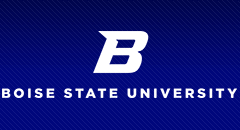Article Title
Is Diet Selection by Greater Sage-Grouse Influenced by Biomass Availability or Toxins?
Department
Biological Science
Disciplines
Poultry or Avian Science
Abstract
Foraging herbivores must meet nutritional requirements by not only finding enough plant biomass to consume, but also finding plants with high protein content and low concentrations of potentially toxic plant secondary metabolites (PSMs). Greater sage-grouse (Centrocercus urophasianus; hereafter, sage-grouse) are sagebrush obligate herbivores that consume relatively high concentrations of PSMs. To meet their nutritional needs and avoid ingesting high amounts of PSMs, sage-grouse may select species of sagebrush for food that have lower concentrations of PSMs than a more abundant species with higher concentration of PSMs. Diet selection by sage-grouse may also be driven by chemical factors at finer scales once a species is selected. For example, different morphotypes of sagebrush (identified by leaf morphology and plant structure) within a patch have different chemical profiles that may influence selection at a patch scale. Our objective was to determine how diet selection is influenced by available biomass and chemical characteristics of morphotypes within a foraging patch, and whether sage-grouse select specific morphotypes of sagebrush to maximize biomass consumed per bite or minimize toxin consumed per bite. For each sagebrush morphotype, we determined density of plants within a patch and available biomass which we calculated as plant volume. We then measured biomass and monoterpene concentrations of the leaves per bite. Our results showed that browsing is not proportional to biomass availability, but that sage-grouse selected sagebrush morphotypes that minimized toxin intake per bite. Our research aims to understand plant-herbivore interactions and how sage-grouse select and use habitats at different spatial scales.
Abstract Format
html
Recommended Citation
Peña, Jacqueline and Fremgen, Marcella
(2016)
"Is Diet Selection by Greater Sage-Grouse Influenced by Biomass Availability or Toxins?,"
McNair Scholars Research Journal: Vol. 12:
Iss.
1, Article 16.
Available at:
https://scholarworks.boisestate.edu/mcnair_journal/vol12/iss1/16
